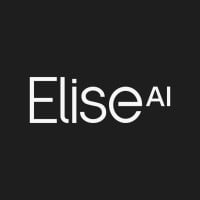Lightmatter is leading the revolution in AI data center infrastructure, enabling the next giant leaps in human progress. The company invented the world’s first 3D-stacked photonics engine, Passage™, capable of connecting thousands to millions of processors at the speed of light in extreme-scale data centers for the most advanced AI and HPC workloads.
Lightmatter raised $400 million in its Series D round, reaching a valuation of $4.4 billion. We will continue to accelerate the development of data center photonics and grow every department at Lightmatter!
If you're passionate about tackling complex challenges, making an impact, and being an expert in your craft, join our team of brilliant scientists, engineers, and accomplished industry leaders.
Lightmatter is (re)inventing the future of computing with light!
Job Description
We are hiring a Design Characterization Engineer to join our team. In this role, you will perform in-depth characterization of laser and silicon photonics solutions for highly scaled AI datacom applications, ranging from laser dies and components to control ICs and packaged multi-chip modules. You will work closely with our photonics design team as well as cross-disciplinary engineering teams to model measurement results, analyze system performance, and identify and solve challenges in device characterization and prototyping. This role requires strong laboratory experience in integrated photonics and fiber optics, as well as expertise in photonics and electronics testing, measurement, and data analysis. Analytical skills, problem-solving, and the ability to clearly communicate and document your findings are essential.
Join a tight-knit team where each individual’s contributions directly influence the success of the company and product. You'll have the opportunity to build innovative photonics solutions from the ground up and tackle groundbreaking challenges. Work with people who love to build and who thrive in diverse technical environments where great ideas are prioritized.
Responsibilities
- Work closely with the architecture and design teams to understand expected component capabilities and testing needs, debug measurement and performance challenges, and update device models based on measurement results.
- Collaborate with the product engineering team to utilize standard test setups and protocols, as well as develop new test infrastructure and approaches.
- Identify challenges and close the design feedback loop with early prototyping and feasibility studies to optimize performance.
- Develop and implement test protocols to evaluate and compare different engineering approaches.
- Maintain testing equipment and develop automations to improve efficiency.
- Analyze test data, document results, and provide feedback to the design team.
- Document and communicate (orally and in written form) methodologies, data, and analyses.
- Bringup of photonics test equipment, test setups, and photonic system prototypes and modules.
- Measure impact of device specifications on performance of high speed communication links: BERT, OSNR.
Requirements:
- M.S. or PhD in Photonics, Physics, Electrical Engineering, or a related field.
- 6+ years of experience in integrated photonics test development, preferably silicon photonics.
- Experience in die-level and wafer-scale testing.
- Experience working with test equipment including benchtop lasers, VNA, optical switches, OSA, ESA, BERT, optical and electrical spectrum analyzers, high speed oscilloscopes (DCA), source-meter units, reference transmitters and receivers, and/or OBR etc.
- Proficiency in programming languages such as Python for test automation and device modeling.
- Strong analytical and problem solving skills to identify and solve issues during the testing process.
- Ability to convey complex technical concepts to both technical and non-technical stakeholders with strong and clear communication.
Preferred Qualifications:
- Experience in silicon photonics and/or laser device design and modeling.
- Experience in characterization of lasers and SOAs, including measurements of the optical spectrum, noise characterization, thermal dependence, and reliability.
- Experience bringing up lab equipment and experimental setups for testing lasers/SOAs.
We offer competitive compensation. The base salary range for this role determined based on location, experience, educational background, and market data.
- Comprehensive Health Care Plan (Medical, Dental & Vision)
- Retirement Savings Matching Program
- Life Insurance (Basic, Voluntary & AD&D)
- Generous Time Off (Vacation, Sick & Public Holidays)
- Paid Family Leave
- Short Term & Long Term Disability
- Training & Development
- Commuter Benefits
- Flexible, hybrid workplace model
- Equity grants (applicable to full-time employees)
Benefits eligibility may vary depending on your employment status. Lightmatter recruits, employs, trains, compensates, and promotes regardless of race, religion, color, national origin, sex, disability, age, veteran status, and other protected status as required by applicable law.
Export Control
Candidates should have capacity to comply with the federally mandated requirements of U.S. export control laws.
Top Skills
Lightmatter Boston, Massachusetts, USA Office
At Lightmatter, we have a flexible work structure; employees work remotely and work from our physical offices located in Boston, MA, and Mountain View, CA
Similar Jobs
What you need to know about the Boston Tech Scene
Key Facts About Boston Tech
- Number of Tech Workers: 269,000; 9.4% of overall workforce (2024 CompTIA survey)
- Major Tech Employers: Thermo Fisher Scientific, Toast, Klaviyo, HubSpot, DraftKings
- Key Industries: Artificial intelligence, biotechnology, robotics, software, aerospace
- Funding Landscape: $15.7 billion in venture capital funding in 2024 (Pitchbook)
- Notable Investors: Summit Partners, Volition Capital, Bain Capital Ventures, MassVentures, Highland Capital Partners
- Research Centers and Universities: MIT, Harvard University, Boston College, Tufts University, Boston University, Northeastern University, Smithsonian Astrophysical Observatory, National Bureau of Economic Research, Broad Institute, Lowell Center for Space Science & Technology, National Emerging Infectious Diseases Laboratories


